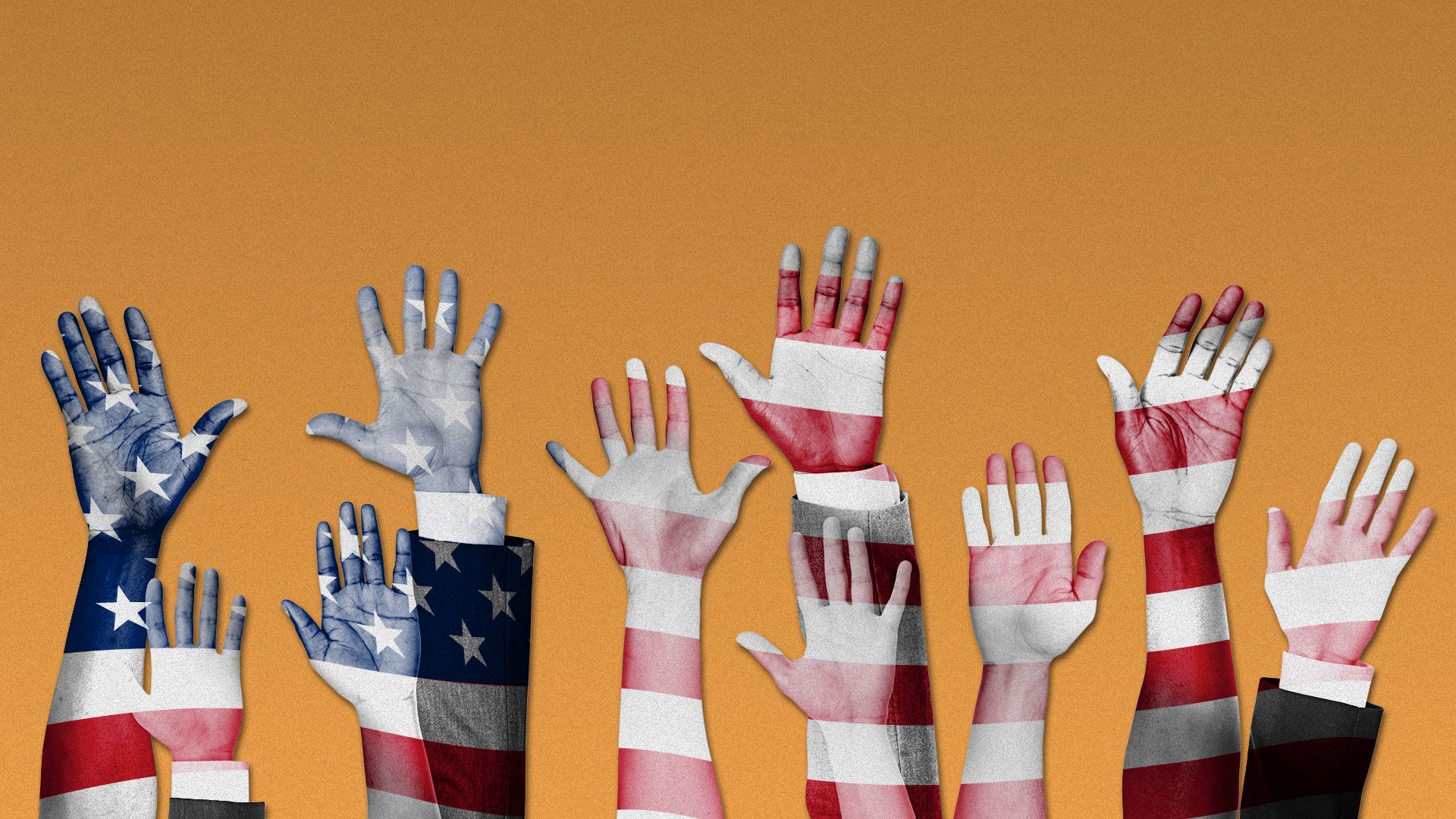Other drug companies want to help make the vaccines
Add Axios as your preferred source to
see more of our stories on Google.

Illustration: Megan Robinson/Axios
Generic drug companies have asked Pfizer, Moderna and Johnson & Johnson to license their COVID-19 vaccine technology to help increase global production, but so far the vaccine makers have given them the cold shoulder.
Why it matters: Other companies are saying they have extra capacity to make more vaccines. Not using that extra capacity could prolong the pandemic throughout the world.
What they're saying: "Right now our biggest problem is that we cannot produce enough vaccine to meet the high demand," Moderna CEO Stéphane Bancel told a Swiss newspaper this week.
Behind the scenes: Several generics manufacturers have reached out to Pfizer, Moderna and Johnson & Johnson, and "none of their offers have been met positively," said one industry source, who asked not to be named to talk about private discussions.
- Teva's CEO told the Financial Times the company "made it clear that we were willing to help, but it has not resulted in any agreements."
- The Biden administration also has been unsuccessful in arranging licensing deals, and has only obtained extra doses from Pfizer to donate, according to the New York Times.
Between the lines: Generic drug companies already produce vaccines for other parts of the world, and they are saying they could help out now that raw material shortages are less of a concern.
- A Pfizer spokesperson said the company and its vaccine partner BioNTech "select contract manufacturers using a rigorous process based on several factors" like quality, safety, capacity and highly trained workers. They continue to "pursue opportunities to bring new partners into its supply chain network."
- Moderna and J&J did not immediately respond to questions.
Flashback: "In certain instances, such as public health emergencies, trade partners may legally issue a compulsory license," the drug industry's lobbying group PhRMA wrote in a 2017 blog. It also noted that "studies have actually proven that compulsory licensing is an ineffective and unsustainable tactic."
Correction: This story has been corrected to note that PhRMA does not support compulsory licensing. Previously, the article stated that generic drug companies making vaccines during a pandemic, without the patent owner's permission, is something the drug industry would have supported four years ago.
